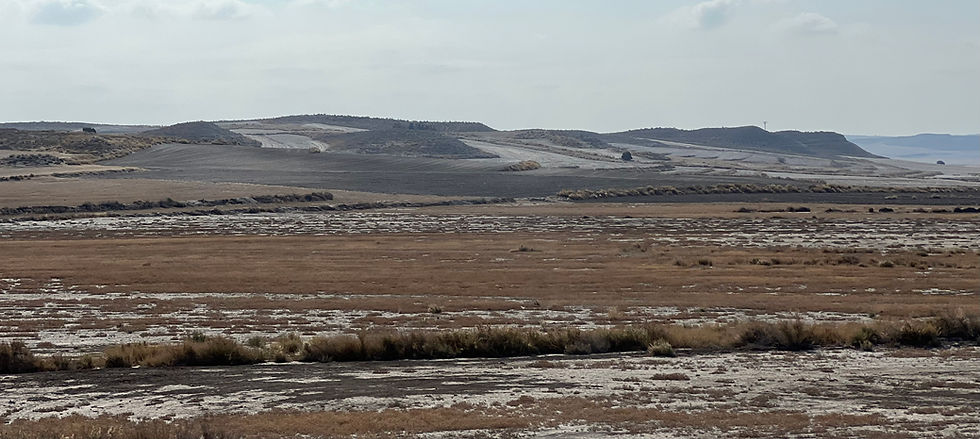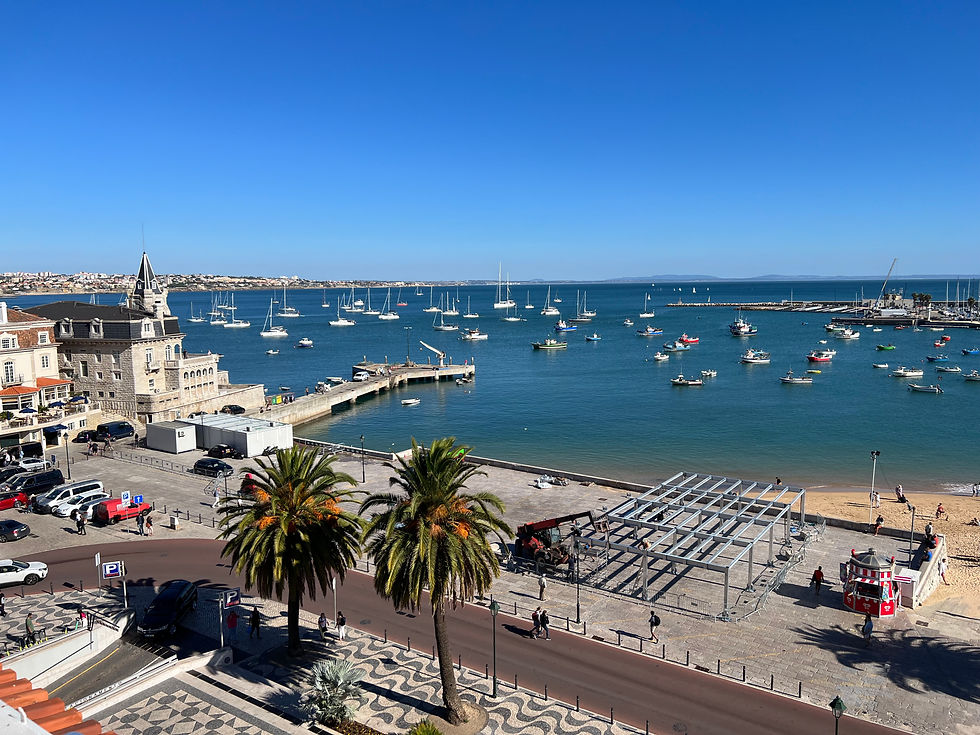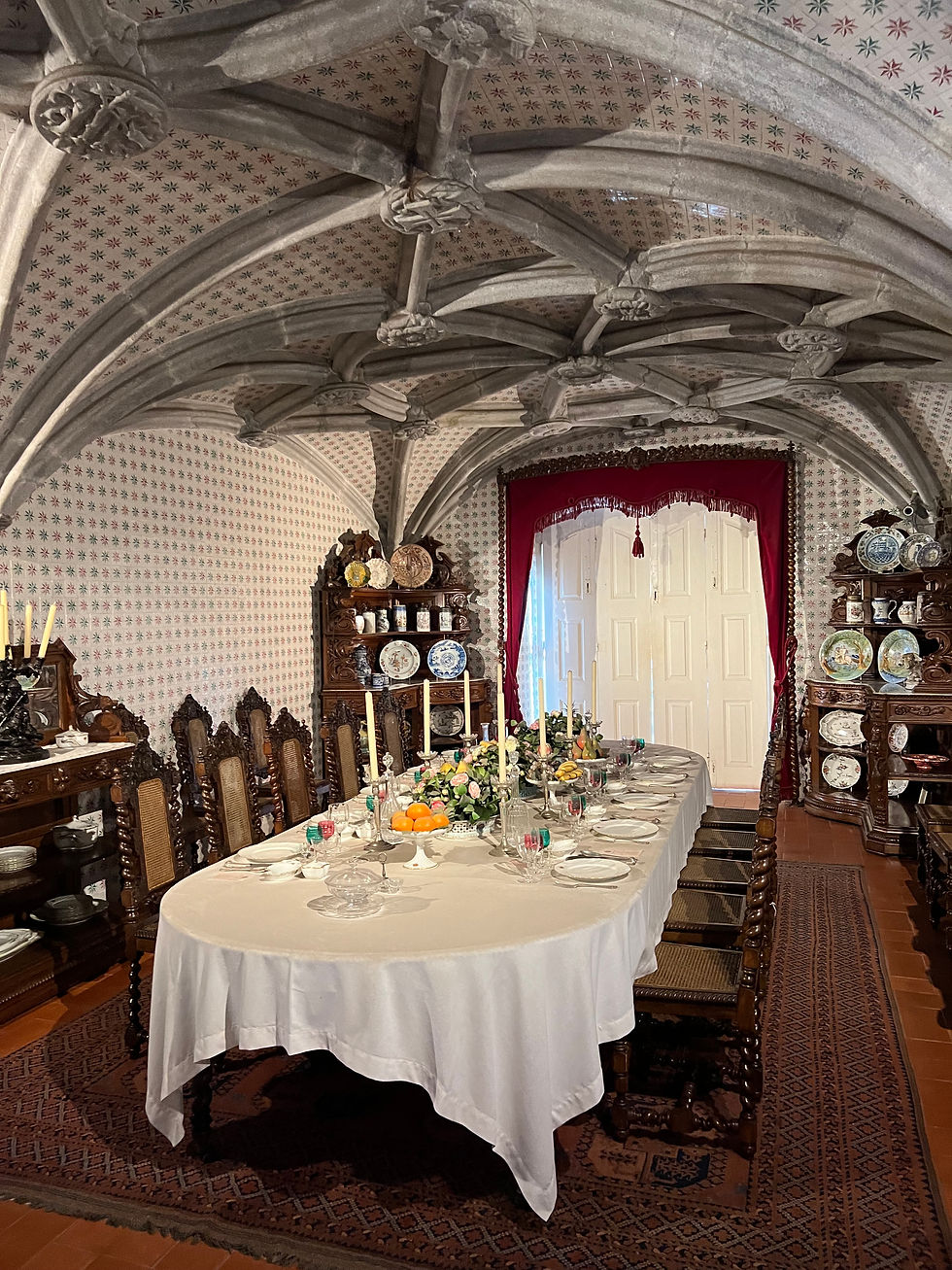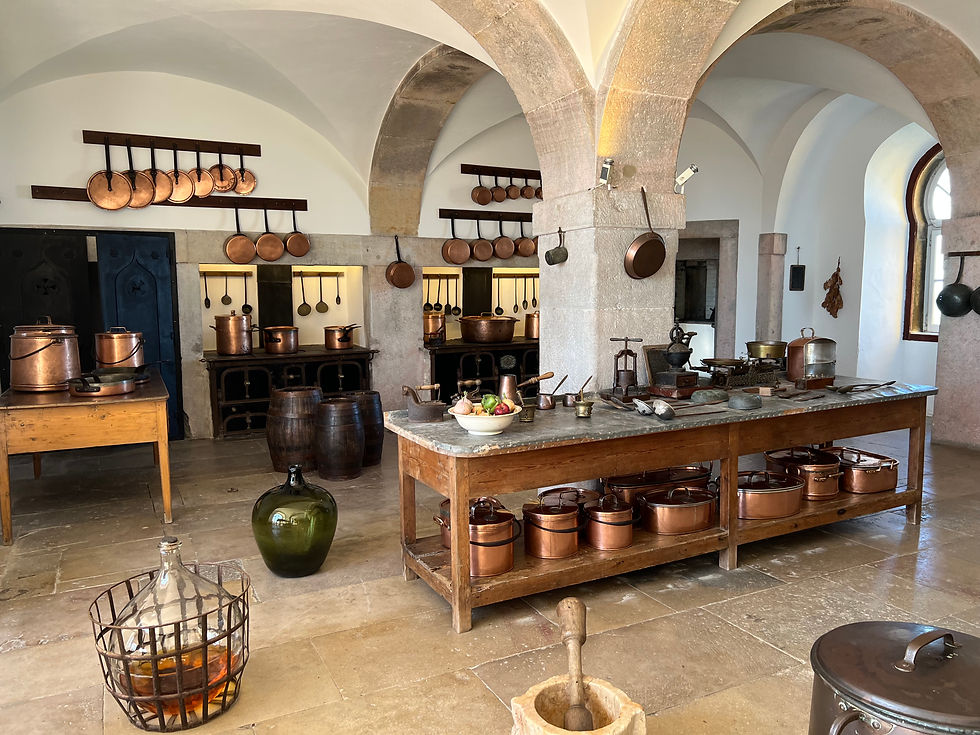
Too Much Travel
I have been advocating living one's life to the full but personally have sort of hit a brick wall, physically and financially. Age and small retirement savings restrict both movement and spending. We have over the past two weeks visited the eastern coast of Spain, southern Spain, the Algarve and the western coast of Portugal; a couple of thousand kilometres of driving. This week will be our final trip for the year to meet our kids in Barcelona, once again a round trip in excess of two thousand kilometres. Storm and Selby with their partners Duncan and Maggie and my sister Fiona and her partner Gordon have agreed to meet in Barcelona. After that I am then going to hide the car keys until next year. Oh, by the way the Jaguar has still not arrived back in Coimbra from the Algarve for repair. I am assured it will definitely arrive this week. I should open a betting book, will it or not?

The past weekend we met with my cousin Linda and her husband, Robert. They are both relations and friends, something you cannot say about all your relatives. Robert, an ex-policeman, informs me he wishes to remain incognito when I mentioned that I may include something about him in this week's blog. He does deserve a mention for three reasons. Those being; his dry sense of humour, his strong political opinions and his renowned storytelling of the goode olde days in the police force way back into the eighties, especially at the height of the miner strikes during the Thatcher era. We call him ‘Bobby the Bobbie’ even though he has been retired for many years. Despite being an ex-policeman he is excellent company, although both of us find ourselves in a much-reduced capacity to drink the nectar. Linda is quieter and before retiring was very successful in the corporate world, inclined to keep her opinions to herself, a good foil to Robert who has a strong opinion on nearly everything.
Cascais we found to be a beautiful clean town, some twenty-five kilometres from Lisbon on Portugal’s west coast. In the good old days the holiday refuge of rich Portuguese gentry and royalty, now very much the favourite lurking place of wealthy foreigners. There are even some of the old Zimbabwe tobacco buyers residing there. I doubt if we ex-Zimbo farmers could afford a property there. In saying that, there is also a vibrant younger set and as for good food, few towns in Portugal will be able to surpass the number of excellent restaurants specialising in seafood at reasonable prices. Much cheaper than our previous destination in Xabia, Spain where we rated the food expensively good, while poorer in both quality and quantity as found in Cascais. The Portuguese are renowned for their generous portions. Locally if you finish too quickly, they feel they did not serve you enough and offer more without additional charge. The town itself is clean, with no holiday high-rise apartments within the central area. It has a lovely safe marina and crystal clear water with a calm beach. The water is cold, being on the Atlantic, so plenty of room to swim despite the beachfront being small.
One of the places close to Cascais we were keen to visit was the Pena Palace in Sintra. The Pena National Palace resembles a decorated cake that sits on the top of the Serra de Sintra. The colourful tones of the palace, the greatest exponent of Romanticism in Portugal, was the dreamchild of D. Fernando II, the King-Artist.

We booked ahead for a time slot having been forewarned about the queues of visitors we would encounter there. Luckily, Linda booked a morning slot, so we managed by arriving nearly an hour early, to find ourselves at the gates of the Palace on time for our slot. Not so for those that followed us with queues stretching back down the mountain by the time we left. The palace is a mixture of a Christian monastery from way back in the early days, I found it to be Moorish in design with over-the-top decorative finishing grandeur. From the terraces, you can see for miles, even as far as Lisbon. The rooms are surprisingly small with what we presume are furnished with cherished items of furniture and decorative works from the time. The ceilings are especially decorative. I think the pictures I will include in this blog will be better than my written description when reading, seems rather convoluted.

The surprising thing was is the volume of people. We trekked round the interior in triple file, having to stop as those ahead took pictures or asked guides for explanations. Rozanne found it claustrophobic, while Robert and my old legs felt worse for wear. Of interest, 5.3 million people visit Sintra every year. Was it worth it? Yes. Would I do it again? No. We only looked at the wonderful gardens as we drove through on a small shuttle bus which we used, rather than our legs as it is quite a steep climb. The gardens are probably worth a visit on their own but for us, by midday, we were exhausted and in need of a drink with a pre-booked taxi waiting to return us to our hotel, or rather a bar near the hotel.

The palace represents a turbulent time in Portugal during the 19th Century ending in the overthrow of the incumbent king, Manuel in 1910 following the assassination of his father, King Carlos, in 1908. A contributing factor to King Carlos’s downfall was that he bowed down to British demand, handing over control of what was to become Rhodesia and Nyasaland. Prior to this, the Portuguese claimed Angola and Mozambique with all the land in between these countries as theirs. The Portuguese people saw this as a betrayal. Those bloody British!
Our old Nissan X-Trail got us there and back no problem. Of interest, a visit to the car hire company has granted me the right to drive as the additional driver with a daily surcharge. We set off early on Wednesday morning for Barcelona and as I am in a huff about the rules pertaining to my age, I am going to sit in the passenger seat while Rozanne drives. Perhaps I will exert my right to criticise her driving, as she does of mine. She claims it is not criticism, rather it is only advice to help me avoid having any accidents. It should be noted when I drive, she offers lots of advice.
Independence Trepidation
In December 1979 with the signing of The Lancaster House Agreement, the country prepared for elections including all the warring parties, to be honest with much trepidation for the white population. This week I read the so-called Chechen leader thug Ramzan Kadyrov said he was sending his teenage sons to fight in Ukraine. To all intent and purposes that is what white Zimbabweans had been doing for eight long years of war. Every young white man on reaching school leaving age was conscripted into the army, some very keen to do their duty, others less so. Most thought the cause was right and unlike the young Russians of today, all were very well trained. Of course, only males. Would it be politically incorrect not to call-up women nowadays? I am sure if Russia had called up women it could well have brought about the end to Putin’s ambitions.
In Rhodesia very few conscripts except those still in training were unblooded, we Rhodesians had a formidable fighting force winning the battles against a much larger enemy.
"Man for man, the Rhodesian army ranks among the world's finest fighting units." - Time Magazine 1977
Numbers were making our position untenable, our numbers declining every day with people leaving and the enemy numbers increasing with mass recruitment and forced recruitment by abduction. Finally, with our last friend, South Africa abandoning us for political expediency, it was time to concede to the demands of the rest of the world led by the British much to the delight of the Chinese and Russians. They were getting access to Africa’s wealth without firing a shot, with the Chinese becoming the largest quasi-colonial power in Africa today.
“Why do we not recognise most politicians are self-serving fools whose ineptness is repeatedly displayed as confirmation of this. Our foolishness in electing them makes us complicit in their idiocy.” - Peter McSporran
By that time Rhodesia had four thousand five hundred regular soldiers, mostly black and ten thousand territorials who were also the mainstay of the working economy in the country being part-time soldiers. The enemy were purported to have some thirty five thousand.
Two-thirds of the white population had left the country by 1979, tired of war, tired of sanctions, searching for a more secure and safer future. Artisans, teachers, doctors and nurses could find work anywhere, many now leaving for Australia, New Zealand, Britain and South Africa. In fact, all over the globe. Going to South Africa I always thought as being a stupid move as I did not doubt their turn would come. With independence looming many feared for their jobs, especially in government and the state-run organisations such as telecommunications, energy, railways and the large agricultural parastatals which under Rhodesian law marketed the majority of our crops. Yes, despite sanctions and naval blockades our tobacco was exported worldwide as was our cotton, while our beef was to be found in some of the best restaurants in Europe by means of flights through Switzerland to name one route. We were self-sufficient in all grains, exporting to many regional destinations who, despite this were happy in claiming they were obeying the rules in regard to sanctions.
“Where there is a possible profit, there is always a means to unlock it, legal or illegal. Often the more illegal the bigger the profit, a rule governments seem not to recognise.” - Peter Mcsporran
Sadly, therefore many of our skilled population was now leaving, no longer the Chicken Run, rather the good sense option. Some of our neighbours left, moreso on the other side of the Great Dyke in our district where some stalwart Afrikaans families left en masse. The majority of us remained and watched events unfold. Right up to election time, supervised by the British supposedly back in control, we looked after the law and order. British army officers supervised the setting up of assembly points meant to be a safe refuge for the CTs and remove them from the field during election campaigning. Some eighteen thousand took this up, but unfortunately, many thousand, perhaps as many as twenty thousand, did not, remaining outside of the camps to freely indoctrinate, and when that failed, they intimidated the civilian population into voting for them. Sure, they sent British Bobbies to oversee the election but they were there for the press only, they did nothing. All the rules leading up to the election were broken. I remember chatting to some of the Brits including the Bobbies so clearly on election day, many not unsympathetic to our cause. They knew it was not a fair election, nor has there been one in Zimbabwe since.

Prior to the election, we realised the writing was on the wall although we hoped for a miracle on the contrary. Every morning in the majority of the country’s provinces; Mashonaland, Midlands, Manica and Victoria we would wake to cockerels crowing imitated by people, the call of Mugabe's party, ZANU (Zimbabwe African National Union), the symbol, jongwe (cockerel). Sure enough, they won a majority, with fifty-seven seats in a house of a hundred. Mugabe then made conciliary remarks, especially to us farmers to remain, making the then President of the Commercial Farmers Union, Dennis Norman, Minister of Agriculture, while behind the scenes he set about destroying his erstwhile ally Joshua Nkomo's Zimbabwe African People's Union. Nkomo and Mugabe had formed an uneasy alliance since 1976 in waging the war. The destruction of ZAPU was to take him a number of very violent years which allowed the white population to get on with our businesses, be it with many challenges, not least the Youth Brigade which was deployed onto our farms to quell the will of the people. Freedom was hard for us white people, intolerable for many black people as the Matabele would soon learn. Later, unbeknown to us, it would be our turn.
Disclaimer: Copyright Peter McSporran. The content in this blog represents my personal views and does not reflect corporate entities.
Yorumlar